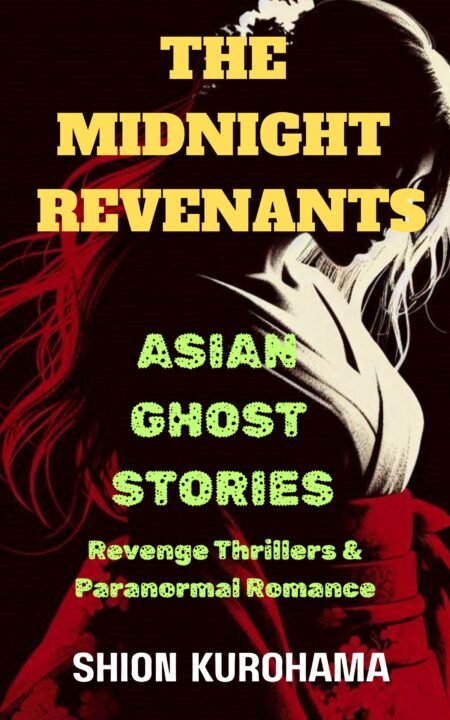In today’s fast-paced world, staying updated with Gen Z slang isn’t just about sounding cool—it’s about bridging the generation gap and staying connected with the younger crowd. Whether you’re a parent trying to relate to your kids, a professional working with young colleagues, or even someone dating a member of Gen Z, understanding their lingo can make conversations smoother and more engaging. Knowing these terms can help you avoid awkward moments and make sure you don’t feel out of place or lagging behind in social situations. It’s also just fun to know what’s trending and how language is evolving with each new generation.
Another big use of knowing such terms is for marketing professionals who may have to design campaigns for Gen Z audience. Campaigns with words which strike a chord with Gen Z will peform better than the one without informal communication with the desired segment.
Plus, using Gen Z slang correctly can make you seem more in touch and approachable, whether in casual conversations or on social media. It shows that you’re aware of the current trends and aren’t stuck in the past. So, whether you’re looking to bond with Gen Z, impress them, or just keep up with the times, learning these terms is a win. After all, nobody wants to take an “L” in the social game—highkey, it’s worth it!
1. Rizz
Rizz is a term that’s been making its rounds in Gen Z conversations, and it essentially refers to someone’s charisma or charm, especially in the context of flirting or romantic interactions. If you’ve got the “rizz,” you’re smooth, confident, and know exactly what to say to impress someone. Think of it like having the right kind of swagger or smoothness that just makes people naturally attracted to you. For example, if we were talking about a popular figure like Harry Styles, we could say, “Harry’s got that rizz—just watch how effortlessly he wins over the crowd with his smile and style.” It’s a way to say someone’s got the magic touch when it comes to winning people over.
2. Wyhmen
Wyhmen is a playful, often sarcastic way Gen Z refers to women, typically used in memes or online jokes. The term is a deliberate misspelling of “women,” and it’s often used to poke fun at overly dramatic or exaggerated views about gender, especially in the context of certain internet cultures. For instance, if someone is making a joke about outdated or absurd ideas about what women “should” be like, they might say, “And that’s why wyhmen belong in the kitchen… eyeroll”.
3. Rayled
Rayled is a term that originates from the combination of “railed” and “L,” with “L” symbolizing a loss. When someone gets “rayled,” it means they’ve been completely overwhelmed, destroyed, or humiliated, often in an online argument or in a competitive context. It’s the kind of word that’s used when someone takes a massive defeat or when they’re metaphorically “run over” by someone else’s argument, skills, or actions. For example, in a debate about the latest Barbie movie, if someone tried to criticize it for being too feminist and got hit back with well-articulated arguments about its cultural significance and success, one might say, “Wow, they just got rayled.”
4. Chad
Chad is a term that has evolved in online culture to represent a stereotypical alpha male. Originally, “Chad” was used to describe a confident, attractive, and often muscular man who seems to have everything going for him, especially in terms of dating success. Over time, the term has taken on a broader meaning and is sometimes used sarcastically to describe someone who’s overly confident or who fits the mold of an idealized “masculine” man.
5. Alpha
Alpha is a term used to describe someone who is seen as a natural leader or dominant figure, often associated with traditional ideas of masculinity. It comes from the concept of “alpha males” in animal hierarchies, where the alpha is the leader of the pack. In human terms, an “alpha” is someone who exudes confidence, takes charge in situations, and is often seen as assertive or influential.
6. NPC
NPC stands for “Non-Player Character,” a term borrowed from video games where it refers to characters that aren’t controlled by players but are instead part of the game’s environment. In Gen Z slang, calling someone an NPC is a way of saying they’re acting in a predictable, robotic, or unoriginal way, as if they’re just going through the motions without any real individuality or critical thinking.
For example, if someone is mindlessly following trends without questioning them, you might hear someone say, “He’s such an NPC, just doing whatever everyone else does without thinking for himself.”
7. Simp
Simp is a term used to describe someone, typically a man, who is overly attentive, submissive, or eager to please someone, often a woman, in a way that’s seen as excessive or pathetic. It’s used in a somewhat mocking way to call out someone who appears to be sacrificing their own dignity or self-respect in an attempt to gain affection or attention.
8. Slay
Slay is a term that Gen Z uses to describe someone doing something exceptionally well or looking absolutely amazing. It’s a word that’s all about confidence, excellence, and style. When someone “slays,” they’re killing it in whatever they’re doing, whether it’s nailing a presentation, rocking a killer outfit, or just exuding major confidence.
9. No cap
No cap is a phrase that means “no lie” or “for real,” used to emphasize that someone is being completely honest or sincere. It’s a way to underline the truthfulness of what you’re saying, often when something seems surprising or hard to believe. The term “cap” itself can be used to call out a lie, so when you say “no cap,” you’re clarifying that you’re not exaggerating or joking.
For example, if someone were to say, “The new Oppenheimer movie is the best film I’ve seen all year, no cap,” they’re emphasizing that they genuinely believe it’s a top-tier movie without any exaggeration.
10. Drip
Drip is a term that refers to someone’s sense of style, particularly when it’s impressive or flashy. If someone’s got “drip,” it means they’re dressed in a way that’s cool, fashionable, and often eye-catching. It’s all about having a look that’s fresh, on-trend, and stands out in a good way.
For example, if you see Zendaya at a red carpet event, decked out in an impeccably stylish outfit, you might say, “Zendaya’s got the drip—she always knows how to put together a killer look.”
11. Vibe Check
Vibe check is a phrase used to assess the mood, energy, or overall atmosphere of a situation or a person. It’s like a quick, informal way to gauge whether someone is feeling good, if the environment is positive, or if something feels off. It can be used both literally and metaphorically, depending on the context.
12. Bussin’
Bussin’ is a term used to describe something that is exceptionally good, often in the context of food. When something is “bussin’,” it means it’s delicious, satisfying, or just really hits the spot. It’s an enthusiastic way to express that something is so good it’s almost beyond words.
For eg, if you’re eating a burger that’s perfectly cooked, juicy, and full of flavor, you might say, “This burger is bussin’!”
13. Sus
Sus is short for “suspicious” and is used to describe someone or something that seems off, shady, or not quite right. It’s a way to call out behavior that appears sneaky or untrustworthy, often in a lighthearted or joking manner. The term gained popularity through the game Among Us, where players would accuse others of being “sus” if they thought they were acting suspiciously.
For example, if a friend suddenly starts being overly secretive about their phone or who they’re texting, you might say, “You’re acting kind of sus—what’s going on?”
14. Ghosting
Ghosting refers to the act of suddenly cutting off all communication with someone without any explanation. It’s often used in the context of dating or friendships, where one person stops responding to messages, calls, or other attempts at contact, leaving the other person confused and wondering what happened. The term “ghosting” captures the idea that the person has vanished like a ghost, leaving no trace behind.
15. Stan
Stan is a term that originated from the song “Stan” by Eminem, which tells the story of an obsessive fan. Today, it’s used to describe someone who is an enthusiastic, devoted, or even obsessive fan of a particular celebrity, band, or even a fictional character. “Stanning” someone means you support them wholeheartedly, often defending them passionately online and keeping up with all their latest news and content.
If someone is a huge fan of Taylor Swift, always defending her online and going to every concert, they might say, “I’m a total Swiftie—I stan Taylor all day, every day.”
16. Cuffing season
Cuffing season refers to the period during the colder months, typically from late fall to early winter, when people are more likely to seek out a romantic relationship or a “cuff” (as in, to couple up). The idea is that as the weather gets colder and the holidays approach, there’s a desire to settle down with someone to snuggle up with, avoiding the loneliness that might come with winter. It’s a lighthearted term that plays on the idea that people want to be “cuffed” or tied down in a relationship, at least temporarily, during this cozy time of year.
17. Boomer
Boomer is a term used by younger generations, particularly Gen Z, to refer to someone from the Baby Boomer generation (those born roughly between 1946 and 1964) or, more broadly, to describe anyone who seems out of touch with current trends, technology, or modern social attitudes. It’s often used in a somewhat mocking or sarcastic way to call out someone who holds outdated views or struggles to understand or accept new ways of thinking.
18. Zoomer
Zoomer is a term used to describe members of Generation Z, those born roughly between the late 1990s and early 2010s. It’s a playful spin on “boomer,” the term for the Baby Boomer generation, and reflects the differences in attitudes, behaviors, and culture between the two groups. Zoomers are known for their fluency with technology, social media, and their progressive views on social and environmental issues.
19. Ratio
Ratio is a term used primarily on social media to describe when a reply to a post receives more likes, retweets, or engagement than the original post itself. It’s often used as a way to point out that the reply is more popular, more agreeable, or has outshined the original statement. Getting “ratioed” is generally seen as a sign that your opinion or post has been unpopular or widely disagreed with.
For example, if a celebrity tweets something controversial and someone replies with a well-articulated counterpoint that ends up getting more likes than the original tweet, people might say, “That reply totally ratioed the original tweet.”
20. Main Character Energy
Main character energy is a term used to describe someone who acts as if they are the protagonist of their own story, living their life with confidence, purpose, and a sense of importance. It’s about embodying the traits of a main character in a movie or novel—someone who is self-assured, charismatic, and at the center of attention. People with main character energy often seem to approach life with a sense of adventure and individuality, making bold choices and being unapologetically themselves.
The following tweet talking about main character energy of South Korean shooter Kim Yeji, Silver Medal winner in Paris 2024 Olympics is the best example:
The most "Main Character Energy" I've ever seen in my life. pic.twitter.com/1wPKFQ3kMp
— Historic Vids (@historyinmemes) August 1, 2024
21. Cheugy
Cheugy is a term used to describe something that is out of date or trying too hard to be trendy, but in a way that’s no longer cool or fashionable. It’s often applied to things that were once popular but are now seen as cringey or overly basic by younger generations. The term can refer to fashion, social media trends, slang, or even lifestyle choices that feel out of touch with current tastes.
For example, if someone is still using phrases like “Live, Laugh, Love” or wearing skinny jeans with Ugg boots, Gen Z might label that as “cheugy.”
22. Hypebeast
Hypebeast is a term used to describe someone who is obsessed with the latest fashion trends, especially streetwear, and often goes to great lengths to acquire limited-edition items, particularly from high-profile brands like Supreme, Off-White, or Yeezy. A hypebeast is all about wearing and showing off the most sought-after clothing and accessories, often as a way to gain social status or recognition within certain circles.
23. Finna
Finna is a slang term that’s a contraction of “fixing to,” meaning “going to” or “about to.” It’s used to express an intention to do something in the near future, and it’s a casual, informal way of saying that you’re planning or preparing to take some action.
If someone says, “I’m finna grab some food after this,” they’re simply saying that they’re about to go get something to eat.
24. Boujee
Boujee is a slang term derived from “bourgeois,” and it’s used to describe someone or something that is luxurious, fancy, or associated with an upscale lifestyle. It often carries a playful or slightly sarcastic tone, implying that someone is trying to live or present themselves in a way that’s more expensive or refined than might be expected.
For example, if someone insists on only drinking high-end champagne or wearing designer brands, you might say, “She’s so boujee, always going for the most expensive stuff.”
25. Yeet
Yeet is a versatile slang term that can be used as both a verb and an exclamation. As a verb, it means to throw something with a lot of force or enthusiasm. As an exclamation, it’s used to express excitement, approval, or sometimes even surprise. The word has a playful, energetic vibe and is often used in a humorous context.
Eg.- if someone tosses a ball across the room with a lot of energy, they might say, “I just yeeted that ball!” Or if someone does something impressive or exciting, like landing a perfect trick on a skateboard, their friends might yell, “Yeet!” to show their excitement.
26. TFW
TFW stands for “That Feeling When,” and it’s used in online conversations, usually followed by a relatable situation or emotion. It’s a way to express a specific feeling or moment that others might also have experienced. TFW is often paired with a meme, gif, or image to enhance the expression and make it more relatable or humorous.
Someone might post, “TFW you finally get home after a long day,” along with a picture of someone collapsing onto a couch.
27. IYKYK
IYKYK stands for “If You Know, You Know.” It’s a phrase used to indicate that something is an inside joke, reference, or piece of information that only certain people will understand. It’s often used to create a sense of exclusivity or to acknowledge that only those in the know will get the full meaning or significance of what’s being shared.
28. Thicc
Thicc is a slang term used to describe someone, usually a woman, who has a curvy body, particularly with larger hips, thighs, and buttocks. It’s often used as a compliment to celebrate a fuller, more voluptuous figure. The term embraces body positivity, highlighting curves as attractive and desirable, contrasting with traditional beauty standards that favored slimmer body types.
29. Salty
Salty is a slang term used to describe someone who is bitter, upset, or annoyed, often over something relatively minor. When someone is “salty,” it means they’re reacting with frustration or irritation, usually because they didn’t get their way or something didn’t go as they hoped. The term is often used in a playful or teasing manner to call out someone’s overreaction.
30. Deadass
Deadass is a slang term that means “seriously” or “for real.” It’s used to emphasize that someone is being completely honest or sincere, often in situations where something might seem unbelievable or where the speaker wants to make it clear they’re not joking. The term is commonly used in casual conversation and can be applied to a wide range of contexts.
31. Spill the tea
Spill the tea is a phrase used to mean sharing gossip or revealing juicy, often scandalous, information. It’s like saying, “Tell me the inside scoop” or “Give me the details.” The term has become popular in online culture, especially in social media and among younger people, and is often used in a playful or dramatic way when discussing personal matters, celebrity news, or any situation where secrets or drama might be involved.
32. Big Yikes
Big yikes is an expression used to react to something that’s particularly awkward, embarrassing, or cringeworthy. It’s a step up from just saying “yikes,” indicating that whatever happened is especially uncomfortable or shocking. The phrase is often used in a humorous or exaggerated way to highlight just how bad or awkward a situation is.
33. Finesse
Finesse is a term that refers to the act of handling a situation with skill, subtlety, or cleverness, often in a way that allows you to get what you want without others noticing or without causing conflict. It can be used to describe someone who navigates tricky situations smoothly, charms their way through challenges, or pulls off something difficult with ease and grace.
For example, if someone manages to negotiate a raise at work by carefully wording their request and reading the situation perfectly, you might say, “She really finessed that raise.”
34. YOLO
YOLO stands for “You Only Live Once,” and it’s used to justify taking risks or making bold decisions, often in the context of doing something fun, adventurous, or spontaneous. The phrase encourages people to seize the moment and make the most out of life, sometimes with the understanding that the choice might be a bit reckless or outside the norm.
35. On fleek
On fleek is a phrase used to describe something that is perfectly done, flawless, or exceptionally well-groomed. It originally gained popularity in reference to perfectly shaped eyebrows but quickly expanded to describe anything that looks great or is done with precision and style. If something is “on fleek,” it’s at its absolute best.
For example, if someone’s makeup is perfectly applied or their outfit is perfectly coordinated, you might say, “Your look is on fleek today!”
36. VSCO Girl
VSCO girl is a term that describes a specific fashion and lifestyle trend popularized by young girls on social media, particularly on the photo-editing app VSCO. The look is characterized by a casual, beachy, and slightly retro aesthetic. Common features include oversized t-shirts or sweatshirts, scrunchies, Hydro Flask water bottles, Birkenstock sandals, Pura Vida bracelets, and a love for environmentally-friendly practices like using metal straws.
The term captures not just the look but the whole vibe of carefree, laid-back, and socially-conscious style that became a viral trend around 2019.

37. W
W is shorthand for “win” and is used to celebrate or acknowledge a success, victory, or positive outcome. It’s often used in online conversations, social media, or text messages to quickly express approval or to recognize that something has gone well. On the flip side, “L” is used to indicate a loss or failure.
38. Snatched
Snatched is a slang term used to describe someone who looks incredibly good, especially in terms of their outfit, hair, or overall appearance. It’s a compliment that suggests everything about their look is perfectly put together, tight, and on point. The term is often used in contexts where someone’s appearance is so impressive that it seems almost flawless.
For example, if a friend shows up to a party in a stunning outfit with perfectly styled hair, you might say, “You look snatched tonight!”
39. Mog
Mog is a slang term derived from “mogul” and is used to describe someone who completely outshines or surpasses another person, often in a competitive or comparative context. If someone “mogs” someone else, they’re dominating them in a noticeable and sometimes humiliating way. It’s often used online to highlight situations where someone is effortlessly superior, whether in looks, skills, or achievements.
For example, if two people are showing off their fitness progress and one person clearly has more defined muscles and a better physique, someone might say, “He totally mogged him with those gains.”









